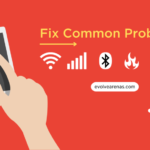Have you ever woken up from a dream that felt so real, it stayed with you the entire day? They can be mysterious, exciting, and sometimes downright bizarre. But what’s behind these nightly adventures?
Let’s dive into the latest insights from neuroscientists and psychologists to understand why we dream, what they mean, and their impact on our daily lives.
The fun you’d have when you play big bamboo slot demo is all a part of reality, even if it feels too good to be true! Log in now to be transported to the next best thing after a heavenly sleep.
Page Contents
Why Do We Do It?
Dreaming occurs during a stage known as REM (Rapid Eye Movement). It’s a time when our brains are almost as active as when we’re awake. But why does this happen?
Neuroscientists believe that it is an active part of our cognitive health. Dr. Rebecca Spencer, a neuroscientist in the field explains that it “could be a way for the brain to process emotions and memories.”
During it, our brains are busy sorting and storing the day’s experiences. It’s like a nightly cleanup crew that organizes and makes sense of all the information we absorb while awake.
Also Read: The New Age of Space Exploration
Decoding The Meanings
They can often be wild and confusing, which makes people wonder, do they have specific meanings? Researchers have been trying to decode them for years.
Dr. Clara Hill, a psychologist suggests that they might reflect our waking concerns and experiences. They may “mirror your fears, hopes, and even unresolved problems,” she says.
Yet, not all have a direct translation. Sometimes, they’re a mix of random thoughts and images. Sigmund Freud believed that they were rooted in deep-seated desires. As did many for a long time. Yet modern science views them as a mix of memory, emotion, and imagination.
In Our Waking Lives
Can they affect us when we’re awake? Experts say, absolutely. Dr. Michael Breus, a clinical psychologist and specialist, notes, “A good dream can leave you feeling positive and refreshed, while a nightmare might make you feel anxious or sad.”
Some therapists use them as a tool in therapy. Analyzing their content helps people explore the unconscious thoughts and feelings that surface in these visions. It’s a fascinating window into our inner world and can be quite revealing.
The Science Behind Nightmares
Nightmares are a common, though often unpleasant, aspect. Neuroscientists believe they are a way for our brains to handle stress and fear. Dr. Spencer explains they might be the brain’s method of “preparing us for real-life challenges.”
Studies show that frequent occurrences can sometimes be linked to mental health issues like anxiety or depression. It’s important to note, though, that not all are cause for concern. It can also be something as simple as eating too close to bedtime.
The Power of Lucid Dreaming
A particularly intriguing dimension is lucid dreaming. This is when you’re aware you’re sleeping and can sometimes control what happens in it.
People who claim to do it can often manipulate their environment, leading to unique and often enjoyable experiences. Dr. Breus points out that it can be a therapeutic tool. It’s been used to help treat conditions like recurrent nightmares and PTSD.
Also Read: The Future of Virtual Reality Concerts: Holographic Performances and Immersive Experiences
Questions for the Future
The research on it is an evolving field. With advancements in technology, like brain imaging and sleep studies, we’re learning more every day. One exciting area is the potential use of it in learning and problem-solving. Some studies suggest that it can enhance creativity and help us find solutions to problems we’re facing in our waking lives.
They are a window into the complexity of the human mind. While we may not yet understand all their mysteries, we know they play an important role in our emotional well-being.



